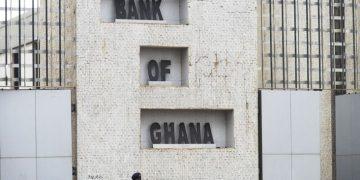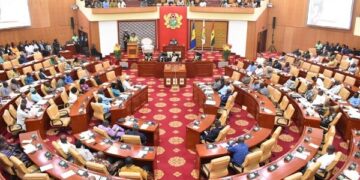When the NDC administration assumed office a few months ago, it promised a new era of accountability and transparency. One of its earliest and loudest anti-corruption claims centred on the disappearance of containers belonging to the Electricity Company of Ghana (ECG), loaded with vital electrical cables.
The public was assured that a full investigation was underway. The Energy Minister even led a media entourage to sites where some of these cables, allegedly sold to private companies, were located.
Now, in a dramatic turn, the Ministry of Energy has announced that the number of containers linked to the scandal is a staggering 2,637, more than double the initial 1,300 declared missing. Yet even as this “breakthrough” is being hailed, critical questions remain unanswered.
First, where exactly were these containers found? According to the Ministry’s Head of Communications, Richmond Rockson, 2,583 of the containers were eventually traced to port authorities. If this is indeed the case, why was there such massive confusion in the first place? Who was responsible for ECG’s inventory mismanagement that led to containers being flagged as “missing” when they were actually within reach at the ports?
Second, and more pressing: Who had these containers? Ghanaians deserve to know the names of the companies or individuals who allegedly received or bought the ECG cables. If some of these containers were diverted, whether knowingly or through negligence, why has no list of culprits or responsible officials been published?
Third, why is the Energy Ministry seemingly reluctant to name and shame, let alone prosecute, those involved in what is now widely viewed as a full-blown scandal? The minister’s public search expedition may have made for good optics, but it is not enough. Beyond vague references to “conflicting figures,” we have yet to see a single individual held accountable.
In any transparent and accountable democracy, an incident of this magnitude should trigger not just internal probes but public disclosure and, where necessary, legal action. Millions of Ghana Cedis worth of public assets were allegedly mismanaged, misplaced, or misappropriated. If the government truly wants to demonstrate that it is serious about fighting corruption, it must act decisively, not selectively.
Moreover, the constantly shifting numbers are cause for concern. From 3,000 containers flagged as uncleared, to 1,300 declared missing, then 40 recovered, and now 2,637 “discovered”, the inconsistencies speak to either gross institutional incompetence or deliberate confusion.
It is not enough to simply say, “The containers have been found.” Ghanaians must be told, where they were found, who had them, Who authorized their clearance or diversion, who benefited financially, and most importantly, who will be prosecuted?.
Let the ECG container scandal not end in press conferences and media tours. Let it end with prosecutions, and reforms, and restore public trust. Anything less would be a betrayal of the very accountability this government claims to stand for.



















































































